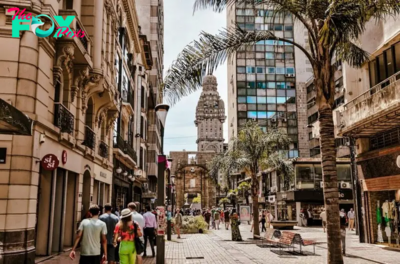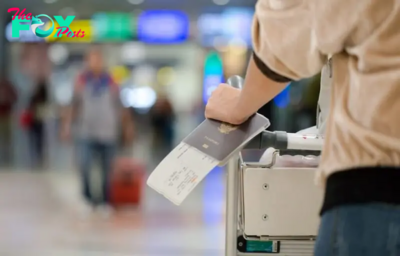Travel
Pack in Style with St Regis Hong Kong’s Head Butler Oleg Manzhura
Long weekend getaways, ski holiday escapades, mid-week sojourns to Bangkok or Bali, or a quick fix in Japan or Korea – there’s no denying we Hong Kongers love to Travel. What we don’t enjoy so much? The packing process. We sit down and chat with St Regis Hong Kong’s head butler Oleg Manzhura to find out his best tips for packing efficiently for all our upcoming adventures.
There are many things the St Regis is known for – the most delicious Bloody Marys, long-held traditions such as champagne sabotage in the evenings, and its impeccable service. Its butler service remains one of the best in the world and its staff anticipates and ensures that every guest’s preferences are met and understood whatever they may be, from delivering your coffee and the weather report in the morning, to garment pressing or booking shows and restaurants for you.
One of their most popular rituals is unpacking and packing for guests. Like all butlers at St Regis, Oleg Manzhura has gone through professional training to pack efficiently and effectively. We pick his brains about his work, popular requests, as well as tips on how to pack efficiently for our next journey.

How did you find yourself in the world of hospitality and why did you decide to become a butler?
Growing up, I was always fascinated by the art of service and the impact it has on people’s experiences. I had the chance to work in various roles within the industry, from food and beverage, concierge, front desk operations to butler service, which deepened my appreciation for the nuances of hospitality.
Deciding to become a butler was a natural progression for me. I was drawn to the idea of providing personalized service and creating memorable experiences for individuals and families.
I wanted to be in a position where I could anticipate needs, provide comfort, and contribute to a seamless experience for my guests.
What is the role of a St Regis butler? What is your day to day like?
The role of a St. Regis butler is to provide personalized, anticipatory service to guests, ensuring their every need is met with attention to detail and discretion. This includes everything from unpacking luggage and arranging dining experiences to making reservations and offering local insights.
As a Head Butler, my day-to-day typically starts with a briefing on guest arrivals and special requests. I then prepare for check-ins, ensuring rooms are set up according to preferences. Throughout the day, I respond to guest inquiries, coordinate services, and handle any requests that arise, always aiming to exceed expectations.

What is the most important skill to have as a butler?
The most important skill for a butler is exceptional attention to detail. This skill enables a butler to anticipate guests’ needs, personalize their experiences, and ensure that every aspect of their stay is seamless and satisfying.
Do high-profile guests tend to have more requests and demands for the butler service team? Or on the contrary?
High-profile guests often have more specific requests and preferences, which can lead to greater demands on the butler service team. However, they may also be accustomed to a higher standard of service and may expect staff to anticipate their needs without excessive communication. Each guest is unique, so while some may have numerous requests, others might prefer a more hands-off approach.
What requests are the most popular you’ve received as a butler?
Amenities and Decoration Requests for special occasions (birthdays, anniversary, honeymoon).
Dinner Reservations: Booking tables at local restaurants, especially for special occasions.
Transportation Coordination: Arranging taxis, shuttles, or private car services for guests.
Laundry and Pressing Services: Handling guests’ clothing needs, including urgent requests for ironing.
Local Recommendations: Providing information about attractions, events, or activities in the area.

It’s a ritual at St Regis for butlers to pack their guests’ luggage. Did you receive specific training on how to pack?
Yes, at St. Regis, butlers typically receive specific training on how to pack luggage effectively. This training includes:
Folding Techniques: Learning the best ways to fold clothes to minimize wrinkles and maximize space.
Organizing Items: Understanding how to categorize and arrange items for easy access, such as keeping outfits together.
Using Packing Aids: Familiarizing with packing cubes, compression bags, and other tools to optimize space.
Handling Delicate Items: Knowing how to pack fragile or valuable items securely.
Guest Preferences: Paying attention to individual guest preferences and packing styles for a personalized touch.
This training ensures that every guest’s luggage is packed neatly and efficiently, contributing to a luxurious experience.

Can you share some tips? How do you best make use of luggage space when packing?
There are few techniques of packing and each of them has its own advantages. These include using packing cubes, rolling closes, or flat packing.
My favorite and quite unique way of packing is when you pack your pants first. Lay the pants flat without folding them so that the end of the pants extends over the edge of the suitcase. Once you have finished with the pants, shirts can then be laid flat on top before the legs of the pants fold over. Once folded, the suitcase is ready to be closed. The essential part of this technique is to lay everything flat; this will make the best use of all the space. This also prevents the clothes from wrinkling.
Other tips are:
Layer Strategically: Place heavier items at the bottom for balance.
Use Packing Cubes: They organize and compress your items effectively.
Roll Your Clothes: This saves space and reduces wrinkles.
Fill Gaps: Use smaller items like socks to maximize space.
Utilize Pockets: Store chargers and toiletries in suitcase pockets.
What tips do you have for packing suits or special occasion gowns in your luggage?
Certainly! Here are some refined tips for packing suits or special occasion gowns:
Use a Garment Bag: Invest in a good-quality garment bag to protect your suit or gown. This minimizes wrinkles and keeps the fabric safe.
Fold with Care: If a garment bag isn’t available, gently fold your suit or gown. For suits, fold the jacket in half, placing it inside out. For gowns, lay it flat and fold it loosely.
Stuff the Shoulders: Use tissue paper or a small rolled-up item to fill the shoulders of the jacket. This helps maintain its shape.
Wrap Delicate Fabrics: For gowns, consider wrapping them in a layer of clean, dry tissue paper to prevent snagging and protect embellishments.
Keep Accessories Separate: Store accessories, such as ties or jewelry, in a separate pouch to prevent tangling or damage.
How do you pack light for a stress-free trip?
Select a few versatile garments that effortlessly complement one another, allowing for a variety of ensembles without excess.
I recommend limiting yourself to two pairs of shoes—one suitable for casual and another for more formal occasions.
Create a Thoughtful Packing List – ideally one outfit for each day of a trip.
Use Packing Cubes and Rolling Technique.
Minimize Toiletries: most of hotels provide all sort of toiletries.
Wear Your Bulkiest Attire: I recommend wearing any heavier clothing or shoes during your journey to ensure your suitcase remains light and manageable.

How do I keep my clothes wrinkle free?
When packing, opt for rolling your clothes rather than folding them, as this method minimizes creases. Additionally, consider using packing cubes to keep items organized and secure.
If you decide to use flat technique, start from placing trousers at the bottom of the suitcase first.
Hang Immediately: Upon arrival at your destination, promptly hang your garments in a well-ventilated area. This allows any minor wrinkles to fall out naturally.
When storing items in a suitcase, place tissue paper between layers of clothing to reduce friction and prevent creases from forming.
At the end of a trip, how should we pack fragile items (biscuits, glassware) and liquids?
For Fragile Items (Like Biscuits and Glassware):
Use bubble wrap or clothing to wrap each fragile item individually. This helps protect them from breaking. Place a layer of bubble wrap or packing paper at the bottom of the box for extra protection. Place the heavier items at the bottom and lighter items on top. Fill any gaps with more padding to prevent movement. Mark the box as “Fragile” and indicate which side should stay up.
For Liquids:
Ensure all liquid containers are tightly sealed to prevent leaks.
Use Bags: Place each liquid item in a resealable plastic bag to catch any potential spills. Store liquids in the center of your suitcase, surrounded by soft items like clothes for extra cushioning. Also keep them handy if you might need any liquids during your journey by packing them where you can easily access them.

What professional advice would you give to those who would want to excel in this field?
Practice clear and polite communication, both verbal and written. Active listening is crucial to understand guests’ needs. Maintain confidentiality and respect guests’ privacy at all times. Discretion is a hallmark of excellent service. Learn to foresee guests’ needs before they ask. This proactive approach enhances the overall experience.
Strive for perfection in every aspect, from setting a table to organizing events. Small details can significantly impact a guest’s experience.
Maintain a calm demeanor, especially in stressful situations. Professionalism in appearance and behavior is essential. Develop the ability to think quickly and creatively to resolve issues efficiently while maintaining a positive attitude. Be prepared to adjust to various situations and preferences. Flexibility is key in a dynamic environment.
What’s the best piece of career advice you’ve ever received?
One of the best pieces of career advice I’ve encountered is: “Focus on continuous improvement and never stop learning.” This advice emphasizes that no matter how skilled you become or how much experience you gain, there’s always room for growth. Whether through formal Education, mentorship, or simply seeking out new experiences, the pursuit of knowledge can lead to greater opportunities and fulfillment in your career.
-

 Travel3d ago
Travel3d ago10 Best Islands to Visit in December
-

 Travel3d ago
Travel3d ago10 Best Countries to Visit in January
-

 Travel5d ago
Travel5d ago8 Gorgeous Islands in the US That You Can Drive To
-

 Travel5d ago
Travel5d ago10 Underrated European Capitals Worth a Visit
-

 Travel5d ago
Travel5d ago12 Best U.S. Cities to Visit in January
-

 Travel6d ago
Travel6d ago10 Real-Life Winter Wonderlands in the U.S.
-

 Travel6d ago
Travel6d ago14 Sneaky Airline Fees You Should Be Aware Of
-

 Travel6d ago
Travel6d ago18 of the World’s Most Beautiful Libraries



























